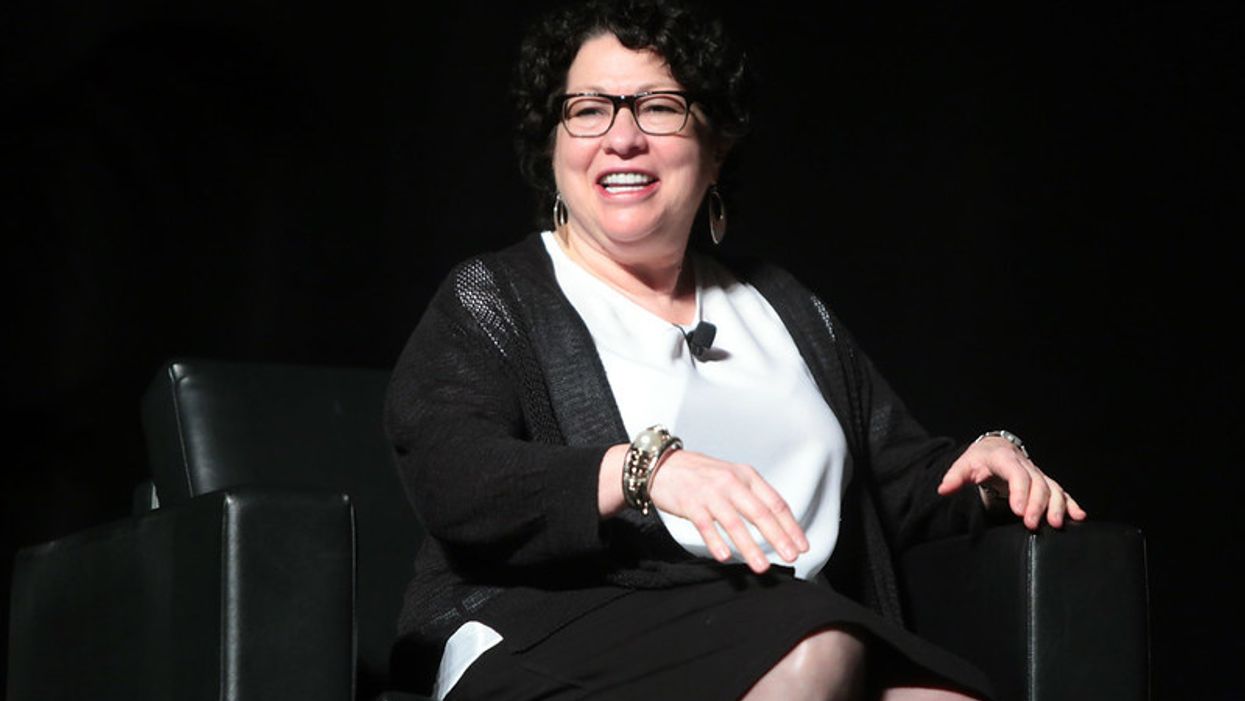Sotomayor Rebukes Court Majority For Jeoparding Rights Of Florida Voters
Reprinted with permission from Alternet
Justice Sonia Sotomayor wrote a forceful rebuke to her colleagues on the Supreme Court Thursday as the majority decided to leave in place a lower court's ruling protecting Florida's effort to disenfranchise nearly 1 million voters.
The Supreme Court had been faced with the prospect of weighing in on a battle over a Florida law requiring people who have been convicted of felonies to pay all related fines to the state before they can vote. In 2018, Florida passed a popular referendum by a large margin permitting people with felonies on their records to participate in elections, but the state government — clearly fearful this change will hurt Republican officeholders — tried to find a loophole. So the new rule puts another hurdle in place for people who have committed felonies to jump over before they can register to vote.
Challenges to the law have made their way through the lower courts. While a trial had resulted in Florida being forced to accommodate voters seeking to register in spite of the barriers, the Eleventh Circuit Court of Appeals placed a stay on that ruling, leaving the barriers to vote in place as further proceedings carry on.
The Supreme Court had the option to overturn that decision, easing the pathway to register to vote with crucial elections approaching fast. But it decided to leave the stay in place, offering no explanation for its decision.
While the majority did not explain its inaction, Justice Sotomayor — joined by Justices Elena Kagan and Ruth Bader Ginsburg — penned a compelling dissent.
"This Court's order prevents thousands of otherwise eligible voters from participating in Florida's primary election simply because they are poor," she wrote. "And it allows the Court of Appeals for the Eleventh Circuit to disrupt Florida's election process just days before the July 20 voter-registration deadline for the August primary, even though a preliminary injunction had been in place for nearly a year and a Federal District Court had found the State's pay-to-vote scheme unconstitutional after an 8-day trial. I would grant the application to vacate the Eleventh Circuit's stay."
Her dissent pointed out part of what is so galling about the Florida law. Even if it were reasonable for the state to require people to pay fines related to their felonies before they can vote — something which she notes disproportionately burdens low-income voters — the state isn't actually providing potential voters any viable pathway to fulfill this obligation:
Crediting expert testimony, the court determined that "many felons do not know, and some have no way to find out, the amount of LFOs included in a judgment." … Not only does Florida provide individuals inconsistent information, but the State's own records are incomplete and unreliable; the District Court even found that Florida lacks records of restitution payments it has received. … Based on the State's estimates, moreover, the District Court noted that Florida officials would need about six years to determine how much (if anything) currently registered voters (to say nothing of those who seek to register) must pay to vote.
What makes this particularly egregious is that the "Florida law puts the risk of error on the prospective voter, suggesting on its registration forms that a false affirmation of voting eligibility is a felony 'regardless of willfulness.'" So even if you registered to vote believing you had paid any fines related to a felony, you could later be charged with another felony if it is later determined that you had outstanding debts that the state was unable or unwilling to tell you about. This has the clear intention of creating a chilling effect against registering for any potential voter with a felony on their record. The tactic is a massive blow to voting rights and completely undermines the will of the Florida electorate that decided to permit voting by people who had committed felonies.
Sotomayor also suggested that the Supreme Court's decision to stay out of the case was an act of hypocrisy.
"This Court's inaction continues a trend of condoning disenfranchisement," she concluded. "Ironically, this Court has wielded Purcell as a reason to forbid courts to make voting safer during a pandemic, overriding two federal courts because any safety-related changes supposedly came too close to Election Day. … Now, faced with an appellate court stay that disrupts a legal status quo and risks immense disfranchisement—a situation that Purcell sought to avoid—the Court balks."




